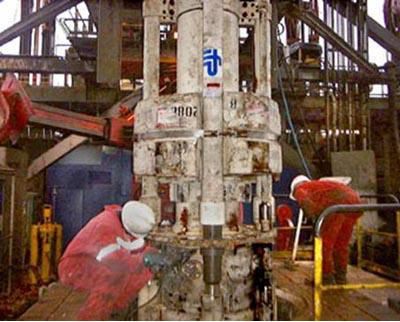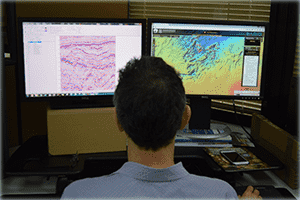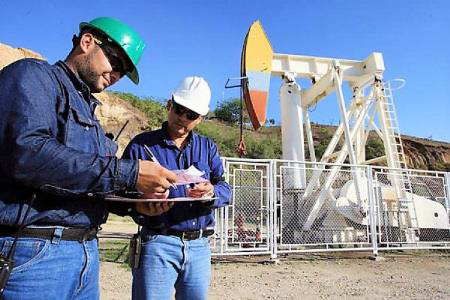COURSE OVERVIEW
DE0170 : Pressure Transient Analysis & Practice

OVERVIEW
| COURSE TITLE | : | DE0170 : Pressure Transient Analysis & Practice |
| COURSE DATE | : | Dec 09 - Dec 13 2024 |
| DURATION | : | 5 Days |
| INSTRUCTOR | : | Dr. Giovanni Da Prat |
| VENUE | : | Abu Dhabi, UAE |
| COURSE FEE | : | $ 8000 |
| Request For Course Outline | ||
Course Description
The pressure transient test is one of the more important tools for evaluating reservoir performance. By measuring the change of pressure over time, pressure transient information is obtained. The method entails measuring flow rates and pressures under a range of flowing conditions and applying the data to a mathematical model. Fundamental data relating to the interval under test, such as reservoir height and details of the reservoir fluids, are also part of the input.
In many cases, wells and reservoirs were managed according to the data based on pressure transient tests. However, as the quality of information obtained from a pressure transient test depends, among other things, on the quality of the pressure and flow data, it is imperative to prevent inaccuracy in the pressure and flow measurements to assure integrity of data. At present, conventional pressure transient testing methods have been adapted in the petroleum industry. These methods provide useful general indicators of reservoir permeability, the flow capacity of the reservoir and any damage that may be restricting productivity.
This course is designed for analysts to obtain a better understanding of the concepts, principles and practices used in pressure transient tests. It is important to understand the limitations of the assumptions being made and the practical implications they have on the interpretations derived from the test.
The course covers the fundamentals of fluid flow on porous media; the concept of flow and build-up test analysis; the development of type curves and its application in the well test; analysis of pressure-buildup distortion by phase redistribution and procedure; well-test data in naturally fractured reservoirs; and the various models of matrix flow.
At the completion of the course, participants will be able to employ proper procedures and techniques used in drillstem testing and analysis; identify the various methods of injection-well testing in a ratio reservoir condition; restate the concepts of interferences and pulse testing; implement well test and their specific purposes; demonstrate the steps of running, estimating and comparing the different types of horizontal well tests models; recognize the behavior of well and reservoir response patterns observed in well test and how to quantify them from pressure transient data.
link to course overview PDF
In many cases, wells and reservoirs were managed according to the data based on pressure transient tests. However, as the quality of information obtained from a pressure transient test depends, among other things, on the quality of the pressure and flow data, it is imperative to prevent inaccuracy in the pressure and flow measurements to assure integrity of data. At present, conventional pressure transient testing methods have been adapted in the petroleum industry. These methods provide useful general indicators of reservoir permeability, the flow capacity of the reservoir and any damage that may be restricting productivity.
This course is designed for analysts to obtain a better understanding of the concepts, principles and practices used in pressure transient tests. It is important to understand the limitations of the assumptions being made and the practical implications they have on the interpretations derived from the test.
The course covers the fundamentals of fluid flow on porous media; the concept of flow and build-up test analysis; the development of type curves and its application in the well test; analysis of pressure-buildup distortion by phase redistribution and procedure; well-test data in naturally fractured reservoirs; and the various models of matrix flow.
At the completion of the course, participants will be able to employ proper procedures and techniques used in drillstem testing and analysis; identify the various methods of injection-well testing in a ratio reservoir condition; restate the concepts of interferences and pulse testing; implement well test and their specific purposes; demonstrate the steps of running, estimating and comparing the different types of horizontal well tests models; recognize the behavior of well and reservoir response patterns observed in well test and how to quantify them from pressure transient data.
TRAINING METHODOLOGY
This interactive training course includes the following training methodologies:
LecturesWorkshops & Work Presentations
Case Studies & Practical Exercises
Videos, Software & Simulators
In an unlikely event, the course instructor may modify the above training methodology for technical reasons.
VIRTUAL TRAINING (IF APPLICABLE)
If this course is delivered online as a Virtual Training, the following limitations will be applicable:
| Certificates | : | Only soft copy certificates will be issued |
| Training Materials | : | Only soft copy materials will be issued |
| Training Methodology | : | 80% theory, 20% practical |
| Training Program | : | 4 hours per day, from 09:30 to 13:30 |
RELATED COURSES

DE0053 : Petrel Geological Process Modeling
- Date: Feb 09 - Feb 13 / 3 Days
- Location: Dubai, UAE
- Course Details Register

DE0931 : Advanced Gas Lift Design & Deliquification
- Date: Feb 09 - Feb 13 / 3 Days
- Location: Muscat, Oman
- Course Details Register

DE0641 : Oil Industry Orientation
- Date: Feb 09 - Feb 13 / 3 Days
- Location: Doha, Qatar
- Course Details Register

DE0377 : Advanced Well Testing & Interpretation
- Date: Feb 09 - Feb 13 / 3 Days
- Location: Doha, Qatar
- Course Details Register
